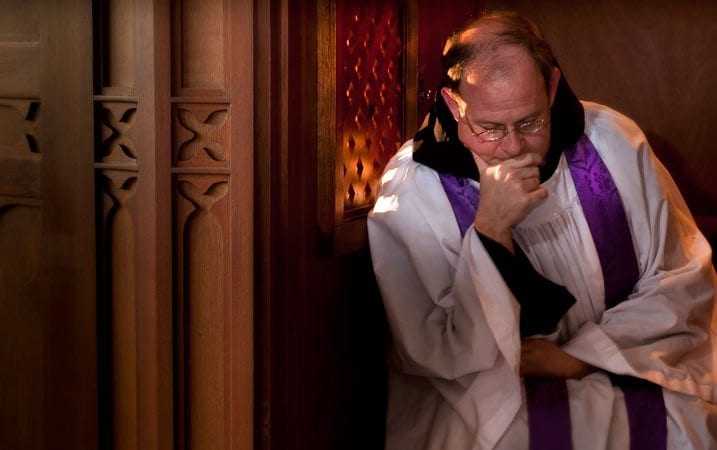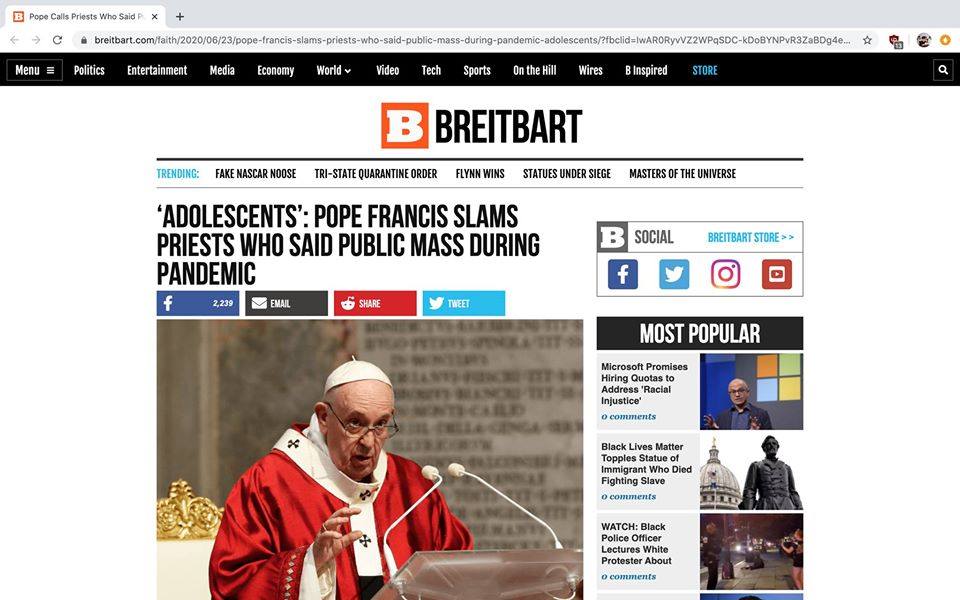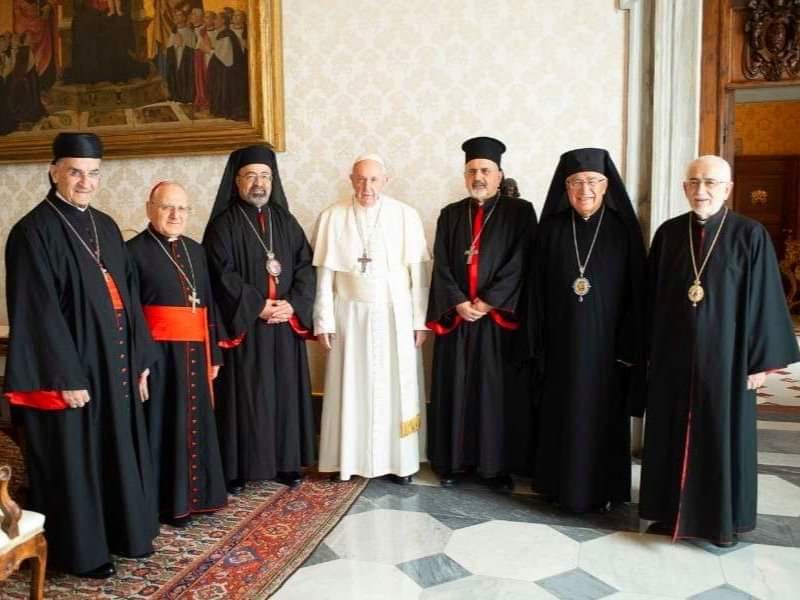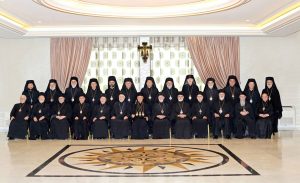The Homily of Cardinal Giovanni Battista Re for the funeral of Pope Francis.
In this majestic Saint Peter’s Square, where Pope Francis celebrated the Eucharist so many times and presided over great gatherings over the past twelve years, we are gathered with sad hearts in prayer around his mortal remains. Yet, we are sustained by the certainty of faith, which assures us that human existence does not end in the tomb, but in the Father’s house, in a life of happiness that will know no end.
On behalf of the College of Cardinals, I cordially thank all of you for your presence. With deep emotion, I extend respectful greetings and heartfelt thanks to the Heads of State, Heads of Government and Official Delegations who have come from many countries to express their affection, veneration and esteem for our late Holy Father.
The outpouring of affection that we have witnessed in recent days following his passing from this earth into eternity tells us how much the profound pontificate of Pope Francis touched minds and hearts.
The final image we have of him, which will remain etched in our memory, is that of last Sunday, Easter Sunday, when Pope Francis, despite his serious health problems, wanted to give us his blessing from the balcony of Saint Peter’s Basilica. He then came down to this Square to greet the large crowd gathered for the Easter Mass while riding in the open-top Popemobile.
With our prayers, we now entrust the soul of our beloved Pontiff to God, that he may grant him eternal happiness in the bright and glorious gaze of his immense love.
We are enlightened and guided by the passage of the Gospel, in which the very voice of Christ resounded, asking the first of the Apostles: “Peter, do you love me more than these?” Peter’s answer was prompt and sincere: “Lord, you know everything; you know that I love you!” Jesus then entrusted him with the great mission: “Feed my sheep.” This will be the constant task of Peter and his successors, a service of love in the footsteps of Christ, our Master and Lord, who “came not to be served but to serve, and to give his life a ransom for many” (Mk 10:45).
Despite his frailty and suffering towards the end, Pope Francis chose to follow this path of self-giving until the last day of his earthly life. He followed in the footsteps of his Lord, the Good Shepherd, who loved his sheep to the point of giving his life for them. And he did so with strength and serenity, close to his flock, the Church of God, mindful of the words of Jesus quoted by the Apostle Paul: “It is more blessed to give than to receive” (Acts 20:35).
When Cardinal Bergoglio was elected by the Conclave on 13 March 2013 to succeed Pope Benedict XVI, he already had many years of experience in religious life in the Society of Jesus and, above all, was enriched by twenty-one years of pastoral ministry in the Archdiocese of Buenos Aires, first as Auxiliary, then as Coadjutor and, above all, as Archbishop.
The decision to take the name Francis immediately appeared to indicate the pastoral plan and style on which he wanted to base his pontificate, seeking inspiration from the spirit of Saint Francis of Assisi.
He maintained his temperament and form of pastoral leadership, and through his resolute personality, immediately made his mark on the governance of the Church. He established direct contact with individuals and peoples, eager to be close to everyone, with a marked attention to those in difficulty, giving himself without measure, especially to the marginalised, the least among us. He was a Pope among the people, with an open heart towards everyone. He was also a Pope attentive to the signs of the times and what the Holy Spirit was awakening in the Church.
With his characteristic vocabulary and language, rich in images and metaphors, he always sought to shed light on the problems of our time with the wisdom of the Gospel. He did so by offering a response guided by the light of faith and encouraging us to live as Christians amid the challenges and contradictions in recent years, which he loved to describe as an “epochal change.”
He had great spontaneity and an informal way of addressing everyone, even those far from the Church.
Rich in human warmth and deeply sensitive to today’s challenges, Pope Francis truly shared the anxieties, sufferings and hopes of this time of globalisation. He gave of himself by comforting and encouraging us with a message capable of reaching people’s hearts in a direct and immediate way.
His charisma of welcome and listening, combined with a manner of behaviour in keeping with today’s sensitivities, touched hearts and sought to reawaken moral and spiritual sensibilities.
Evangelisation was the guiding principle of his pontificate. With a clear missionary vision, he spread the joy of the Gospel, which was the title of his first Apostolic Exhortation, Evangelii gaudium. It is a joy that fills the hearts of all those who entrust themselves to God with confidence and hope.
The guiding thread of his mission was also the conviction that the Church is a home for all, a home with its doors always open. He often used the image of the Church as a “field hospital” after a battle in which many were wounded; a Church determined to take care of the problems of people and the great anxieties that tear the contemporary world apart; a Church capable of bending down to every person, regardless of their beliefs or condition, and healing their wounds.
His gestures and exhortations in favour of refugees and displaced persons are countless. His insistence on working on behalf of the poor was constant.
It is significant that Pope Francis’ first journey was to Lampedusa, an island that symbolises the tragedy of emigration, with thousands of people drowning at sea. In the same vein was his trip to Lesbos, together with the Ecumenical Patriarch and the Archbishop of Athens, as well as the celebration of a Mass on the border between Mexico and the United States during his journey to Mexico.
Of his 47 arduous Apostolic Journeys, the one to Iraq in 2021, defying every risk, will remain particularly memorable. That difficult Apostolic Journey was a balm on the open wounds of the Iraqi people, who had suffered so much from the inhuman actions of ISIS. It was also an important trip for interreligious dialogue, another significant dimension of his pastoral work. With his 2024 Apostolic Journey to four countries in Asia-Oceania, the Pope reached “the most peripheral periphery of the world.”
Pope Francis always placed the Gospel of mercy at the centre, repeatedly emphasising that God never tires of forgiving us. He always forgives, whatever the situation might be of the person who asks for forgiveness and returns to the right path.
He called for the Extraordinary Jubilee of Mercy in order to highlight that mercy is “the heart of the Gospel.”
Mercy and the joy of the Gospel are two key words for Pope Francis.
In contrast to what he called “the culture of waste,” he spoke of the culture of encounter and solidarity. The theme of fraternity ran through his entire pontificate with vibrant tones. In his Encyclical Letter Fratelli tutti, he wanted to revive a worldwide aspiration to fraternity, because we are all children of the same Father who is in heaven. He often forcefully reminded us that we all belong to the same human family.
In 2019, during his trip to the United Arab Emirates, Pope Francis signed A Document on Human Fraternity for World Peace and Living Together, recalling the common fatherhood of God.
Addressing men and women throughout the world, in his Encyclical Letter Laudato si’ he drew attention to our duties and shared responsibility for our common home, stating, “No one is saved alone.”
Faced with the raging wars of recent years, with their inhuman horrors and countless deaths and destruction, Pope Francis incessantly raised his voice imploring peace and calling for reason and honest negotiation to find possible solutions. War, he said, results in the death of people and the destruction of homes, hospitals and schools. War always leaves the world worse than it was before: it is always a painful and tragic defeat for everyone.
“Build bridges, not walls” was an exhortation he repeated many times, and his service of faith as Successor of the Apostle Peter always was linked to the service of humanity in all its dimensions.
Spiritually united with all of Christianity, we are here in large numbers to pray for Pope Francis, that God may welcome him into the immensity of his love.
Pope Francis used to conclude his speeches and meetings by saying, “Do not forget to pray for me.”
Dear Pope Francis, we now ask you to pray for us. May you bless the Church, bless Rome, and bless the whole world from heaven as you did last Sunday from the balcony of this Basilica in a final embrace with all the people of God, but also embrace humanity that seeks the truth with a sincere heart and holds high the torch of hope.
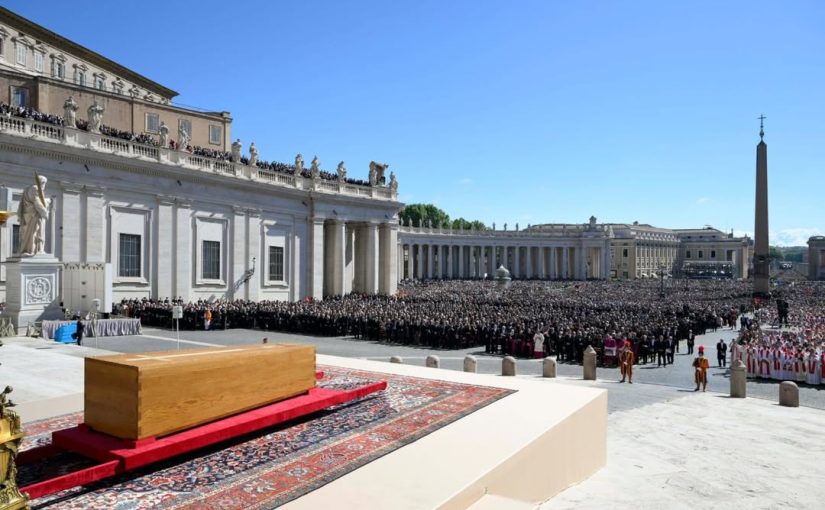

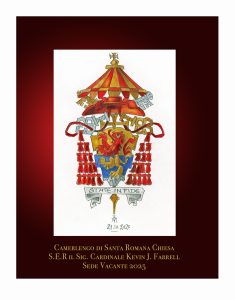 With the death of the Pope, and before the election of the new one, the temporal things of the Church are cared for by a designated cardinal holding the office of Chamberlain or camerlengo, an office of the papal household that administers the property and revenues of the Holy See. In effect the camerlengo is the unelected and temporary sovereign of Vatican City State. At the moment Cardinal Kevin Farrell is the camerlengo. A key responsibility of Cardinal Farrell was to announce and to certify the death of Pope Francis.
With the death of the Pope, and before the election of the new one, the temporal things of the Church are cared for by a designated cardinal holding the office of Chamberlain or camerlengo, an office of the papal household that administers the property and revenues of the Holy See. In effect the camerlengo is the unelected and temporary sovereign of Vatican City State. At the moment Cardinal Kevin Farrell is the camerlengo. A key responsibility of Cardinal Farrell was to announce and to certify the death of Pope Francis.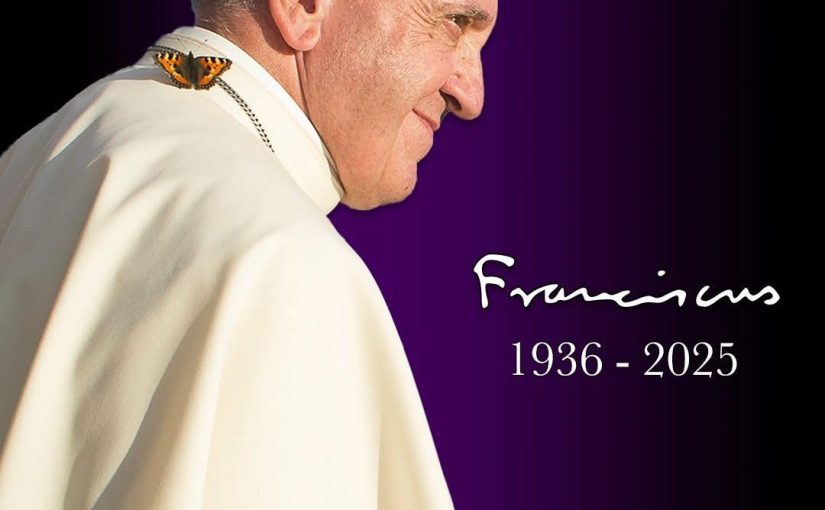
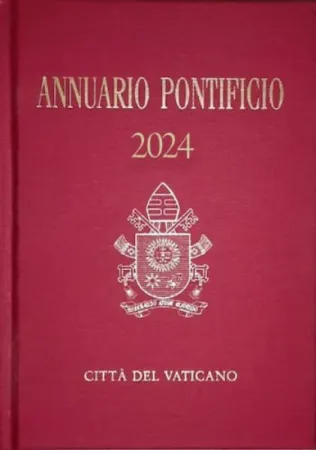
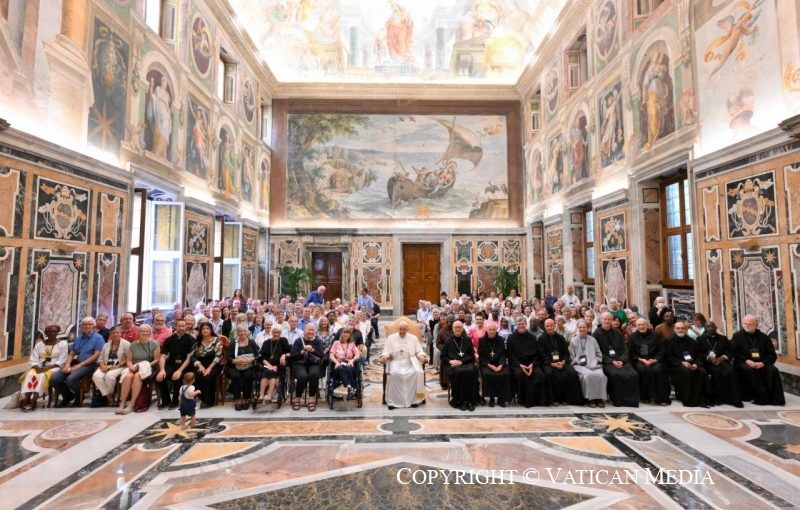
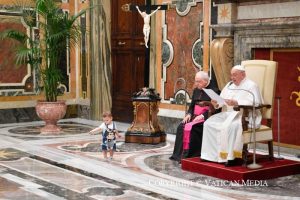 Dear brothers and sisters, good morning!
Dear brothers and sisters, good morning!